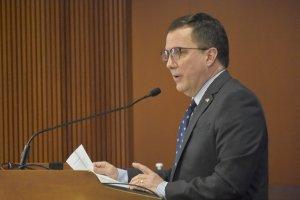
Caption
Rep. Wes Cantrell's school voucher plan would allow families in online-only districts to send their children to private schools using state funds, but critics say that money should stay in public schools.
Credit: Pexels/Stock photo


